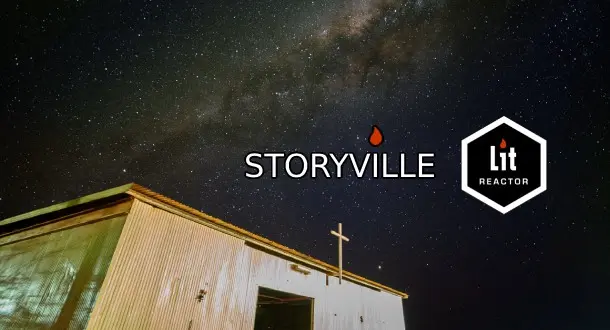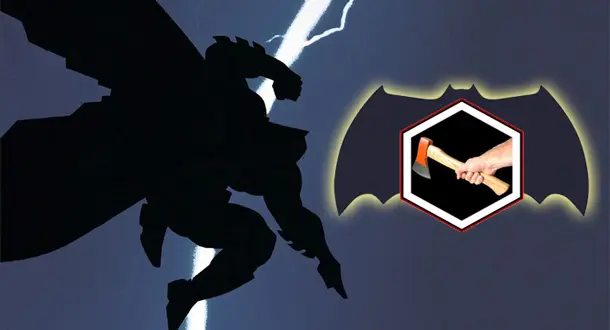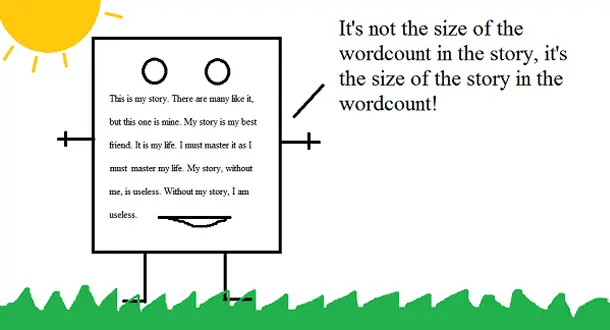Menu
Columns
Showing 3546 Columns
Showing 3546 Columns
July 31st, 2014

Have you ever fancied yourself a matchmaker? I certainly have, but most of the time I’m a little off with my suggestions. Okay, way off. But when it comes to literary characters, perhaps I can redeem myself? Even though they aren’t written into the same narrative, I think some characters would really get along, if only they could meet. Imagine new stories written, with both likely and unlikely character pairings. Your favorite characters would have a chance to develop relationships. How would it go? Let’s do a little matchmaking and see!
Read Column →July 30th, 2014

By request, we're addressing a question that has come up from time to time regarding the critiquing process as it relates to short stories vs. essays/non-fiction. Fortunately, a lot of the groundwork has already been laid out in a prior column, which you can read HERE. It's a nice little refresher on how the LitReactor workshop functions and how to get the most out of it.
Read Column →July 30th, 2014

History is one of my favorite topics to write about. It’s complex, tumultuous, and often bizarre. Sitting in a classroom or wandering through a sterile museum, we often feel estranged from history. We see it dragged out of context, put on a slide or beneath a glass case that can’t be touched. In such an environment, the past can seem dull and impractical to modern outsiders. But history isn’t just about dusty objects; it’s about people, and that’s what makes it such fertile ground for writers.
Read Column →July 29th, 2014

WARNING: There may be triggers in here about violent and sexual acts. Think about the stories and novels you write, or may want to write some day. What is the one thing you’d never write about? Okay, now write it. Terrifying, right? Today we’re going to talk about how to write taboo fiction, those aspects of our lives, our fantasies, our greatest fears, that are difficult to get down on the page. Done correctly, I think just about any taboo can be conquered.
Read Column →July 29th, 2014

Happy birthday! "Culling The Classics" is a year old this month! We've somehow managed to sift through 12 classic works already, and I think many a "to-read" bookshelf is better for it. We've got some big plans for the next 12 months, but first, let's take a quick look back at our year in classics:
Read Column →July 28th, 2014

image and logo courtesy quoteunquoteapps.com For convenient, on-the-go novel-reading, there are numerous applications for your phone to choose from; Kindle, iBooks and Nook are perhaps the top three, and there are many original but little-known entries to the market, not to mention the plethora of third-rate knock-offs.
Read Column →July 28th, 2014

Psst! Hey you! Yeah, you there! The writer! C'mere a sec and lemme talk to you! I heard through a reliable grapevine that you've been invited to read at an event later this year? Or you've been invited to sign copies of your book at a Con next month? Or you've been invited to do something that involves you going before a crowd of people and saying those mighty words: I am Writer! Hear me Rawr!
Read Column →July 25th, 2014

Something interesting happened this year in Season Four of HBO’s Game of Thrones. Whereas until now the show had been largely shadowing George R. R. Martin’s novels (albeit with some trimming down and condensing), this season the television series became a separate entity. Not only were some events changed outright, but characters died that didn’t die in the books and there may even have been scenes that explore what might be revealed in future books.
Read Column →July 24th, 2014

If you happen to visit Paris during the month of August, you, along with the 1,000,000,000 other tourists, will find all the landmarks for which the City of Light is famous – the Eiffel Tower, the Arc de Triomphe, the place where Jean-Paul Belmondo woos Jean Seberg in A Bout de Souffle – all present and looking exactly like they do in the postcards. Only bigger and more full of French people. All except one.
Read Column →July 24th, 2014

As Shakespeare said, “Brevity is the soul of wit.” Which translated into modern language means, “Everyone should write and read microfiction.” What is Microfiction? It’s a subset of flash fiction—those super short stories typically told in 1,000 words or less. Definitions vary, but for the most part, microfiction is any story told in 300 words or less, and could even be as short as a few words. (At Microfiction Monday Magazine, I use the limit of 100 words.)
Read Column →Submitting your manuscript?
Professional editors help your manuscript stand out for the right reasons.
